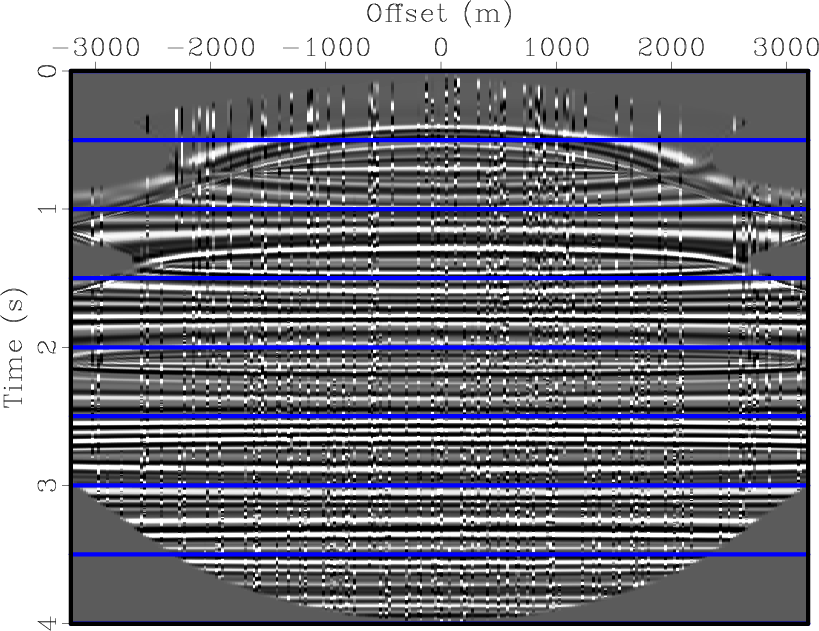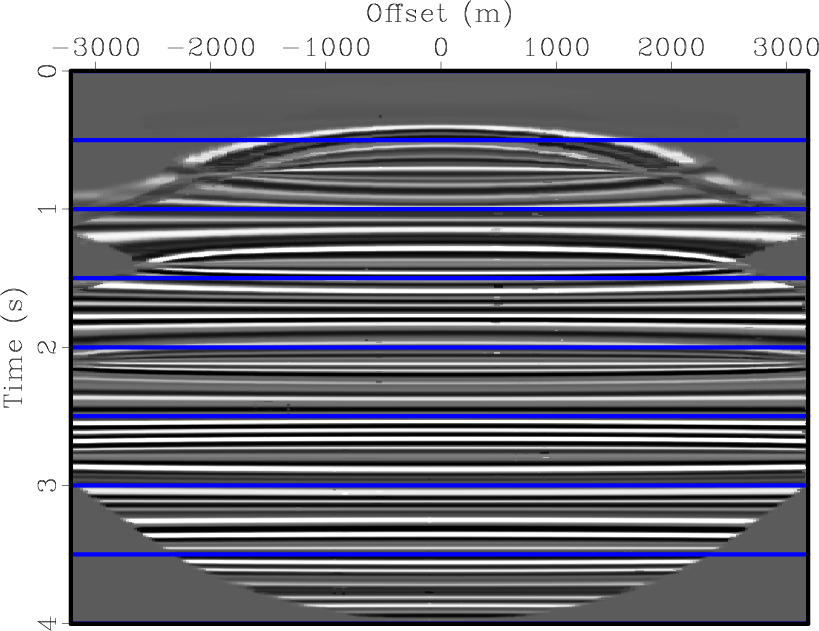A new paper is added to the collection of reproducible documents:
Deblending using normal moveout and median filtering in common-midpoint gathers


The benefits of simultaneous source acquisition are compromised by the challenges of dealing with intense blending noise. In this paper, we propose a processing workflow for blended data. The incoherent property of blending noise in the common-midpoint (CMP) gathers is utilized for applying median filtering along the spatial direction after normal moveout (NMO) correction. The key step in the proposed workflow is that we need to obtain a precise velocity estimation which is required by the subsequent NMO correction. Because of the intense blending noise, the velocity scan can not be obtained in one step. We can recursively polish both deblended result and velocity estimation by deblending using the updated velocity estimation and velocity scanning using the updated deblended result. We use synthetic and field data examples to demonstrate the performance of the proposed approach. The migrated image of deblended data is cleaner than that of blended data, and is similar to that of unblended data.
 Simultaneous editorials in
Simultaneous editorials in